
In this newsletter:
QUBES News
Kudos
Partner News and Opportunities
Resources and Opportunities
QUBES News
QUBES Publishes New Mission Statement
We’ve published a new mission statement that captures our evolution. Let us know what you think!
"QUBES is a community of individuals and organizations committed to accelerating STEM education reform. Supported by our social-cyberinfrastructure and commitment to teaching quantitative skills, we work to make sure that our teaching is effective, open, accessible, equitable, and inclusive."
The statement can be found on the QUBEShub about page.
New Group Forms around Calling Bull
Join a new group around sharing resources for teaching with the Calling Bullshit curriculum, based on Calling Bullshit: The Art of Skepticism in a Data-Driven World (Random House, 2020) by Carl J. Bergstrom and Jevin D. West.
The group is a "fan" community site for instructors that allows for collaboration and adaptation of the Calling Bull curriculum to a variety of institutional contexts. See the featured resource in the sidebar for an example, and join the Calling Bull group!
Spring Faculty Mentoring Networks Recruit Participants

The following Spring 2021 FMNs are still recruiting for applicants:
See the FMN Announcement to browse the descriptions!
How QUBES Can Support Your Education Project
QUBES has a comprehensive project support infrastructure, built by and for STEM educators. Hosting a project on QUBES can help to address challenges such as building and coordinating your community, disseminating your products, and documenting your impacts.
Please visit our new Grant Services page to learn more about how QUBES can be used to support education projects. Or fill out this brief form, and we will get in touch with you.
Kudos
NABT Honors QB@CC Group Members Heather Seitz and Adronisha Frazier with Awards
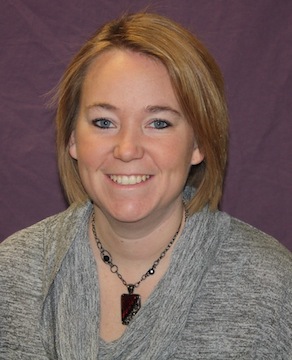
NABT awarded QB@CC Steering Committee member Heather Seitz (Johnson County Community College, Overland Park, KS) with the Two-Year College Biology Teaching Award, which recognizes a two-year college biology educator who employs new and creative techniques in their classroom teaching.
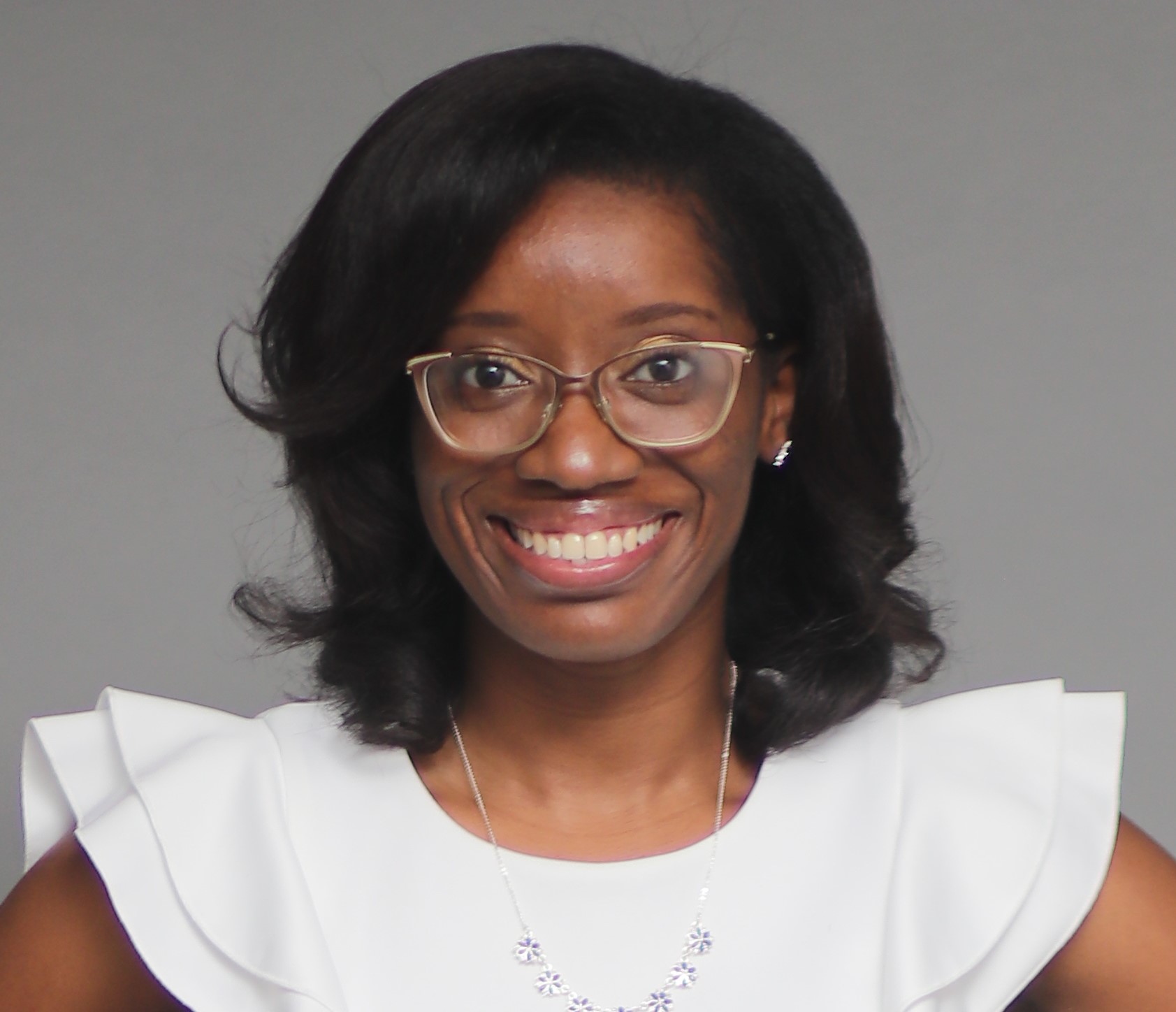
QB@CC member Adronisha Frazier (Louisiana State University, Baton Rouge, LA) won the Biology Educator Leadership Scholarship (BELS), a $5,000 scholarship to support practicing teachers who want to further their education in the life sciences or life science education.
Congratulations to Heather and Adronisha!
BioSkills Guide is Subject of CBE-LSE paper
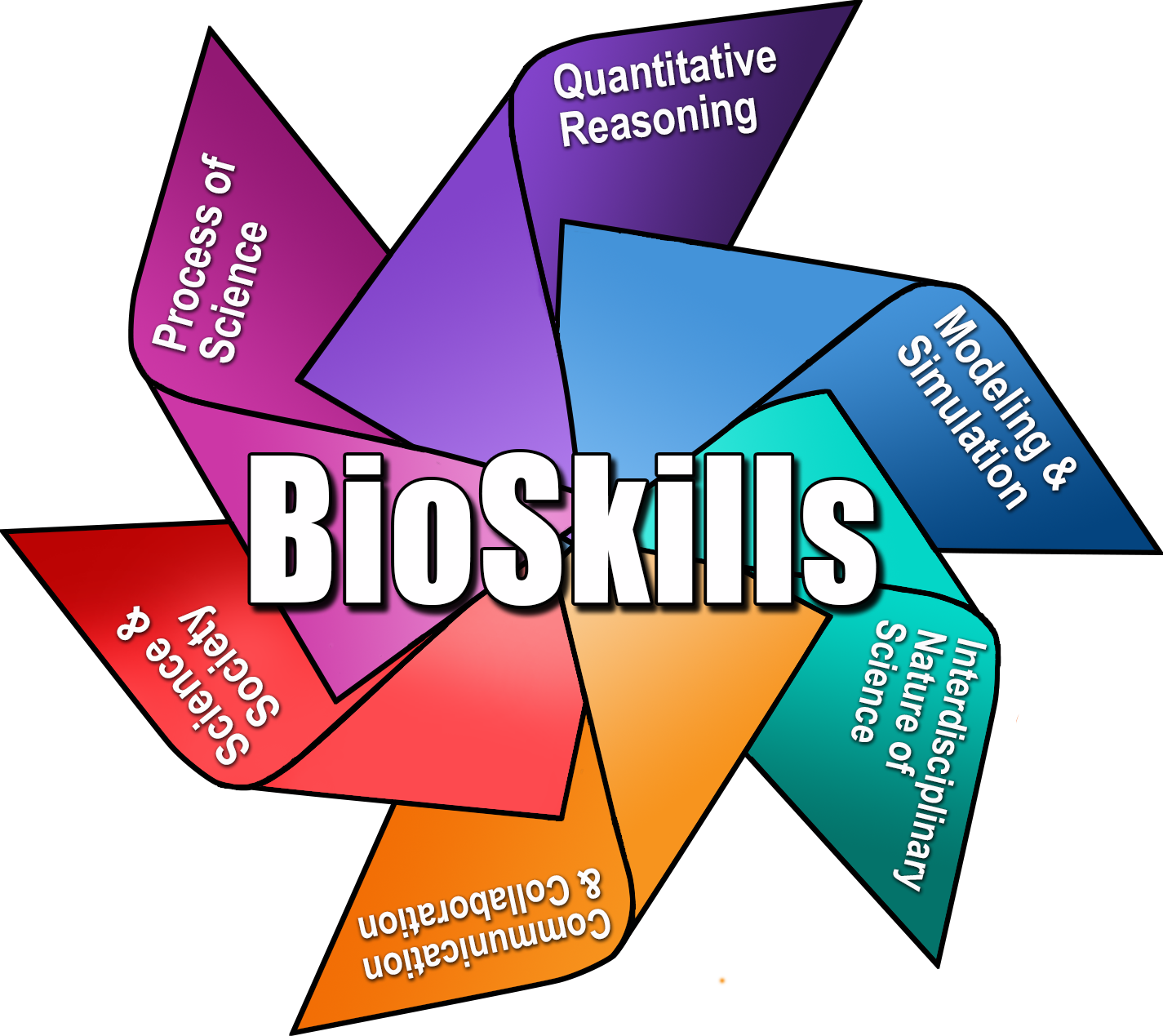
The BioSkills Guide, developed by the BioSkills Group, is the subject of a paper published in CBE LSE. The guide elaborates on the Vision and Change core competency framework and provides a set of measurable learning outcomes that can be more readily implemented by faculty. The paper articulates the group’s process in creating the guide and its national validation.
Education Issue of Bulletin in Mathematical Biology Features QUBES Users

The Bulletin in Mathematical Biology published an education issue, edited by John Jungck, Raina Robeva, and Louis Gross. The issue brings together a review of STEM education initiatives that have been particularly effective as well as addresses challenges.
The QUBES and BioQUEST communities are highlighted in “Building Community-Based Approaches to Systemic Reform in Mathematical Biology Education” by Olcay Akman, Carrie Diaz Eaton, Dan Hrozencik, Kristin P. Jenkins, and Katerina V. Thompson.
Partner News and Opportunities
Featuring the BIOME Institute
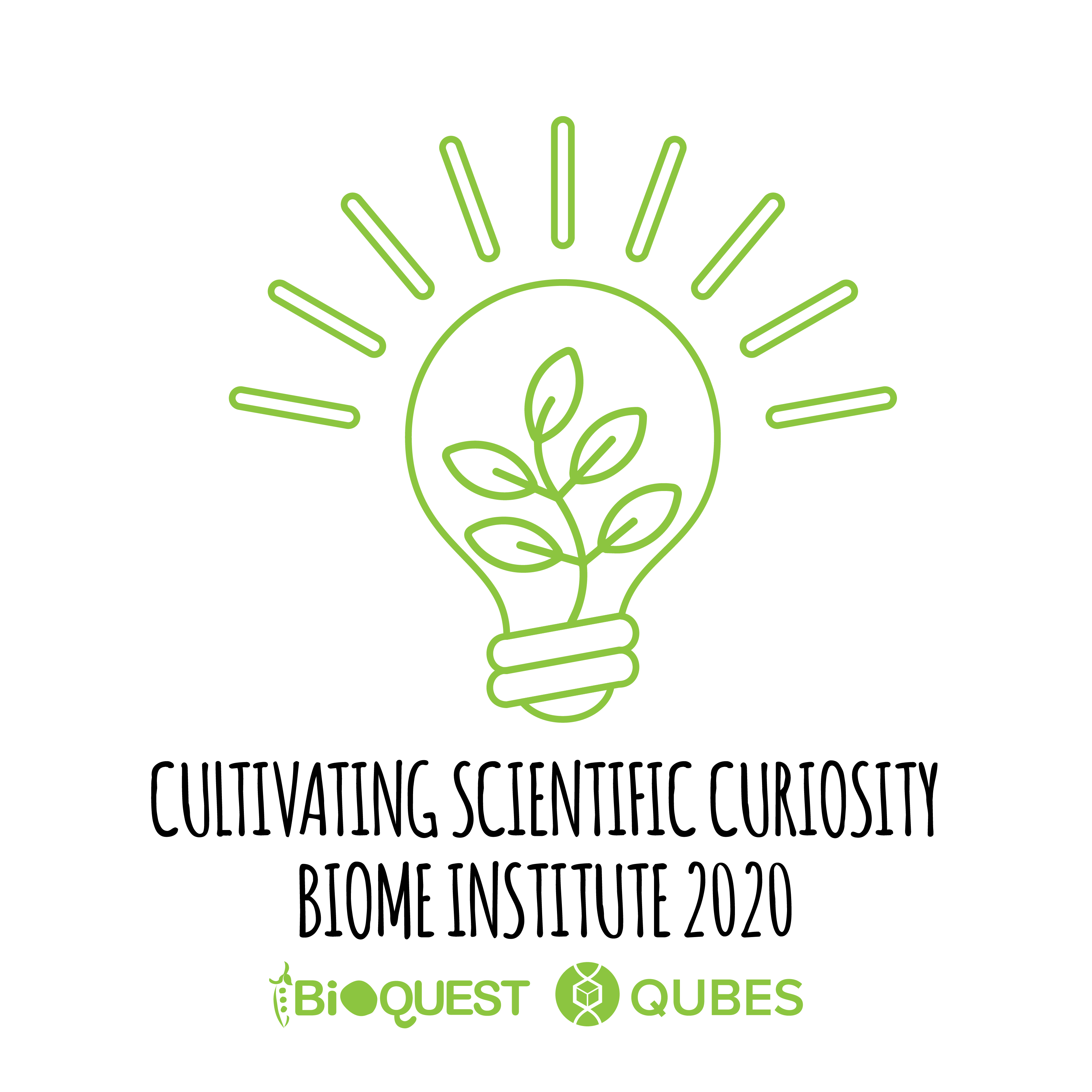
The BIOME (Biology and Mathematics Educators) Institute wrapped up their fall working groups November 20. Working groups focused on developing a range of undergraduate research experiences, from engaging, hands-on modules to course-based undergraduate experiences. Learn more about the working groups on the BIOME website.
Many thanks to the working group facilitators for their leadership, and congratulations to all the participants who have earned the title of BIOME Fellows through their involvement and contributions in the BIOME Institute.
The BIOME Institute has also spawned multiple Spring 2021 Faculty Mentoring Networks, including two focused around social justice--Social Justice and Community Change and Scientists Spotlights and Data Nuggets--as well as Molecular CaseNet’s Molecular Case Studies: At the Interface of Biology and Chemistry and Cell Collective's Computational Modeling and Simulation Designed with the Classroom in Mind. All of these are still recruiting for applicants!
First Partners@QUBES Leadership Summit, Dec. 14

December 14, 2020, 1:30-3:30 pm ET
Join us in promoting your partnership with QUBES at our Partners@QUBES Leadership Summit. Together, we’ll celebrate your accomplishments, strengthen and connect our communities, and make your work and QUBES’ support more visible.
This virtual event will feature lightning talks from partner leaders to showcase the excellent work we’ve done together and provide opportunities for networking and discussion with leaders in the QUBES community. Learn how other groups are using QUBES, find new collaborators and resources, and brainstorm ways to overcome project challenges.
Those interested in partnering with QUBES are also welcome to attend.
Join the partner support group for announcements and see the Summit webpage for registration information!
SABER Seeks Participants for Survey on Postdoc Experience
If you are a STEM postdoc or work with STEM postdocs, SABER is collecting information about perceptions and experience of postdocs’ professional development and mentoring support during their postdoc tenure.
This information will help identify gaps in the support that postdocs receive in order to transition successfully to an academic career. It will provide much needed insight on the impact of postdoc professional development which is currently lacking.
The IRB-approved survey can be found here. Please complete by December 31, 2020 and contact Michael (memoore "at" ucdavis "dot" edu) with any questions or concerns you might have.
SIMIODE Forms New Group for Community College and Two-year College Teachers of Differential Equations
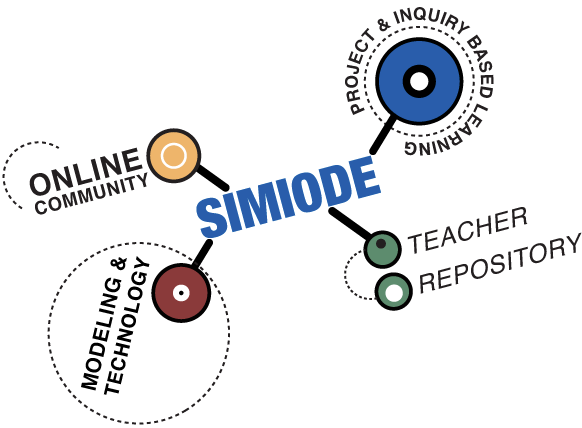
SIMIODE invites you to join a new group for Community College and Two-year College Teachers. These groups are places where discussions through forums will permit colleagues to exchange ideas, activities, and views related to their special needs in this important part of our teaching profession.
Visit SIMIODE’s Group directory to join the group.
iDigBio Webinar to Focus on Virtual Community Building (featuring speakers from BioQUEST and QUBES!)

The webinar, “Built-in Flexibility: Lessons Learned Engaging Your Community Virtually,” will be held on December 8 from 2:00-3:00 p.m. ET.
This webinar will focus on designing engaging and accessible online events that build lasting community.
Andrew Hasley, Hayley Orndorf, and Deborah Rook, from QUBES and BioQUEST, will explore the 2020 Biology and Math Educators (BIOME) Institute as a case study. They’ll share lessons learned and practices that can be applied to online professional development and educational events.
Topics include: participant engagement, asynchronous and synchronous community building, access, universal design, and online professional development.
Visit the iDigBio webinar series page for more information and a Zoom link.
About the series: Recognizing the rapid changes happening within museum communities and the efforts being made throughout the community to adapt to these changes, iDigBio is organizing a webinar series: Adapting to COVID-19: Resources for Natural History Collections in a New Virtual World.
Amy L. Chang, Education Director of the American Society of Microbiology, Retires
Congratulations to Amy L. Chang, who is retiring December 15, after 40 years at the American Society of Microbiology.
Chang worked to develop numerous programs that are now mainstays: the Coalition of Undergraduate Life Sciences Education (CELS), ASM Division W, Curriculum Guidelines, ASM Conference for Undergraduate Educators (ASMCUE), the Journal of Microbiology & Biology Education (JMBE), and the first Gordon Research Conference for Undergraduate Microbiology Education.
She also led efforts to help those underrepresented in science, leading ASM to become a champion for communities not historically included. ASM was bestowed with the US Presidential Award for Mentoring Minorities in Science in 2000, and Chang helped support and establish fellowships and professional development for underrepresented groups, as well as the Annual Biomedical Conference for Minority Students (ABRCMS).
Resources and opportunities
NSF’s IUSE Program Seeks Proposal Reviewers

Sign up to be an NSF IUSE Grant Proposal Reviewer
Please note, you cannot be a reviewer if you are submitting an IUSE Proposal this coming year.
The AAAS-IUSE Initiative is offering numerous resources for those applying for IUSE grants and for STEM teaching and learning generally. Sign up for their newsletter here.
AAAS-IUSE Calls for Blog Proposals
The AAAS-IUSE blog is looking for individuals to author a blog addressing the following theme: Leveraging this moment of disruption to empower evidence-based systemic change that advances equity.
Proposals are due December 13, 2020. Learn more about the submission process here.
The 2021 AAAS-IUSE blog, The Disruptor, is dedicated to exploring strategies that empower faculty and other stakeholders to create systemic change that improves diversity, equity, and inclusion and supports students from underrepresented and underserved communities to participate and succeed in STEM.
Fellowship Opportunity for Early- or Mid-Career STEM Education Scholars
Housed at the University of Chicago, and a joint effort with Michigan State University, the summer institute in advanced research methods for Science, Technology, Engineering, and Mathematics education research (SIARM for STEM) is funded via a 3-year grant from the National Science Foundation (2020-2023).
The project team will select a diverse cohort of 22 NSF Fellows of STEM Education Research among early- and mid-career scholars, especially those under-represented in STEM. Learn more about the program here.
NSF Dear Colleague Letter Calls for Proposals on Approaches to Online Undergrad Bio
A Dear Colleague Letter from the Directorates for Biological Sciences and Education and Human Resources is encouraging:
"the submissions of proposals to the Research Coordination Networks for Undergraduate Biology Education (RCN-UBE) Program that focus on developing, piloting, and sharing innovative and transformative approaches for online undergraduate biology courses, particularly those that foster inclusive approaches that encourage student engagement and retention in biology."
QUBES and a number of our partners are listed as recommended digital biology platforms/infrastructure/datasets to leverage in projects! Find out how we can help with your project at our Grant Services page.
The letter also encourages attending upcoming RCN-UBE office hours, held on the following Fridays from 1:00 to 3:00 p.m. ET:
December 11, and 18, 2020
January 8, 14, and 15, 2021
See the RCN-UBE website for more information.
Members of the QUBES team are always looking to meet others who have a passion for quantitative biology education. Reach out so we can help you gather your collaborators, move projects forward, and continue to move quantitative biology forward. Connect with us by submitting a support ticket.

From left to right: Sam Donovan (Director of OER), Carrie Diaz Eaton (Director of QUBES Consortium), Kristin Jenkins (Director of BioQUEST), Drew LaMar (Director of Cyberinfrastructure), and Jeremy Wojdak (Director of Professional Development).
Do you have a product or result from a QUBES sponsored activity? Help us measure our success by sharing your product or result with QUBES. Learn how to cite QUBES.
|